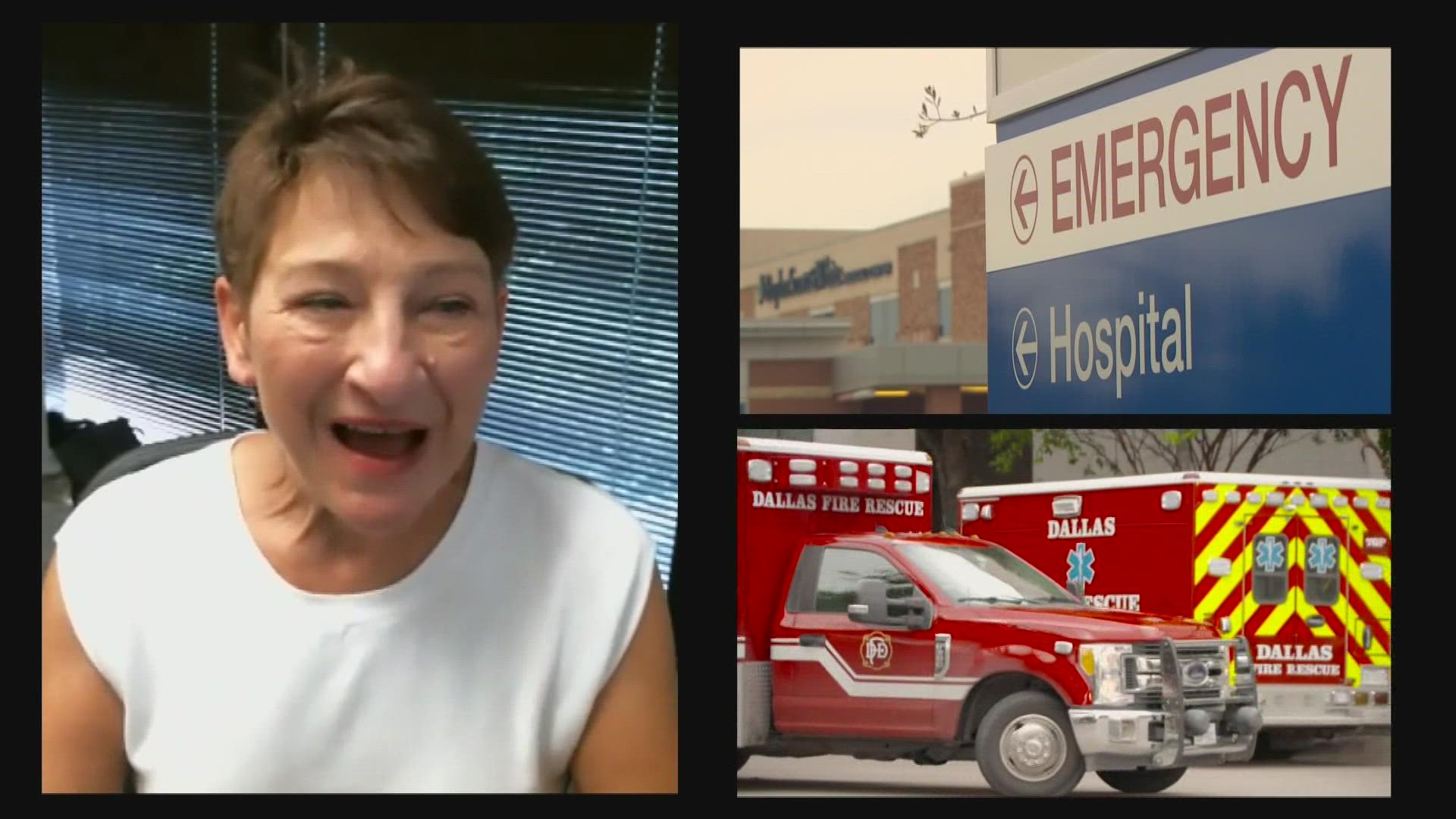FORT WORTH, Texas — Texas officials are now denying requests from hospitals for additional staffing as COVID-19 cases and hospitalizations surge across the state.
Hospitals in North Texas have requested 619 clinical support staff to help fill vacancies and emergency needs according to the North Central Texas Trauma Regional Advisory Council (NCTTRAC).
Statewide, Texas hospitals as of Wednesday have requested roughly 2,800 additional staff to help with the surge of COVID-19 patients, according to the Texas Department of State Health Services.
“This delta variant is wreaking havoc in North Texas,” Dallas-Fort Worth Hospital Council President Steve Love said. “We've got non-COVID patients. We have COVID patients and frankly, we've got a very fatigued workforce.”
State officials previously approved requests from regional hospital councils. The Department of State Health Services spent $5.39 billion funding requests for medical surge staffing, almost all of which reimbursed by FEMA, according to a spokesperson. At the peak of needs in February, the state was supporting 13,618 medical staff.
Now the state is denying those requests and telling hospitals to ask city and county leaders to use federal COVID relief funds, but local leaders had much of that money already accounted for. Dallas County has not approved its plan but is expected to use its $512 million on programs like broadband infrastructure, affordable housing, and business assistance.
Dallas County Judge Clay Jenkins said they plan to appeal to the state to ask them to reverse the decision.
"We had planned to use the money to increase broadband, for mental health care, for rental assistance and other programs. What the state is saying is ‘we’re not going to help you anymore with COVID through mask requirements or allowing hospitals and schools to do things to keep people safe," Jenkins said. “Their excuse to us is that they’re using their money to help other jurisdictions. Not real clear what those other jurisdictions are.”
Love says as the issue is worked out, hospitalizations continue to rise rapidly every day.
“Obviously they're disappointed, and we're hoping that we can work with the state and come up with a workable solution,” he said. “When you reach a point that you've got more patients than you've got staff, you reach a patient safety issue.”
Hospitals are working to stretch staffing, but, in North Texas alone, there are now more than 1,700 COVID patients in hospitals, more than four times the level in the region one month ago. John Peter Smith Hospital in Fort Worth says its COVID patient count has gone from 8 to 59 in one month and is requesting 90 additional staff members.
In Texas, 21% of hospitals are reporting staff shortages, about double the national average according to a weekly federal report.
“We really need support in the hospitals where health care workers are struggling to take care of very sick people,” said Cindy Zolnierek, a registered nurse and CEO of Texas Nurses Association. “I'm deeply concerned. I don't get into the fight in terms of who should provide the resource, but help is needed.”
One issue complicating the problem is pricing. Love says the rate for traveling nurses to fill the vaccines has roughly doubled from pre-pandemic levels.
“The rate increases are huge,” Zolnierek said. “They're beyond anything I've ever seen. You know, it's a free market, and so I think that that's what we're seeing.”
Love compares it to a gas station raising prices during a hurricane.
“This is a public health emergency, so while there is a supply and demand issue, I think the pricing really should be looked at and held to a very reasonable level,” he said.
The Department of State Health Services says in total 40 facilities, ranging in size, have requested additional staff so far.
“Local governments across Texas now have access to more than $10 billion in federal Coronavirus Local Fiscal Recovery Funds that are available to pay for urgent COVID-19 response needs, including medical surge staffing,” Chris Van Deusen, a DSHS spokesperson said in an email. “As always, emergency response begins at the local level. Encouraging health care facilities to utilize the resources already available within their communities will ensure the response can be as flexible as possible.”
Love commends the state for a great job providing help and staffing during the previous surges but says there needs to be a solution with the surge not slowing down.
“Maybe we can get the state hopefully to reconsider that and rethink it,” Love said. “We're feeling the pinch and we're feeling it in a very strong way, and that's why we're doing everything we can to alleviate that issue.”

